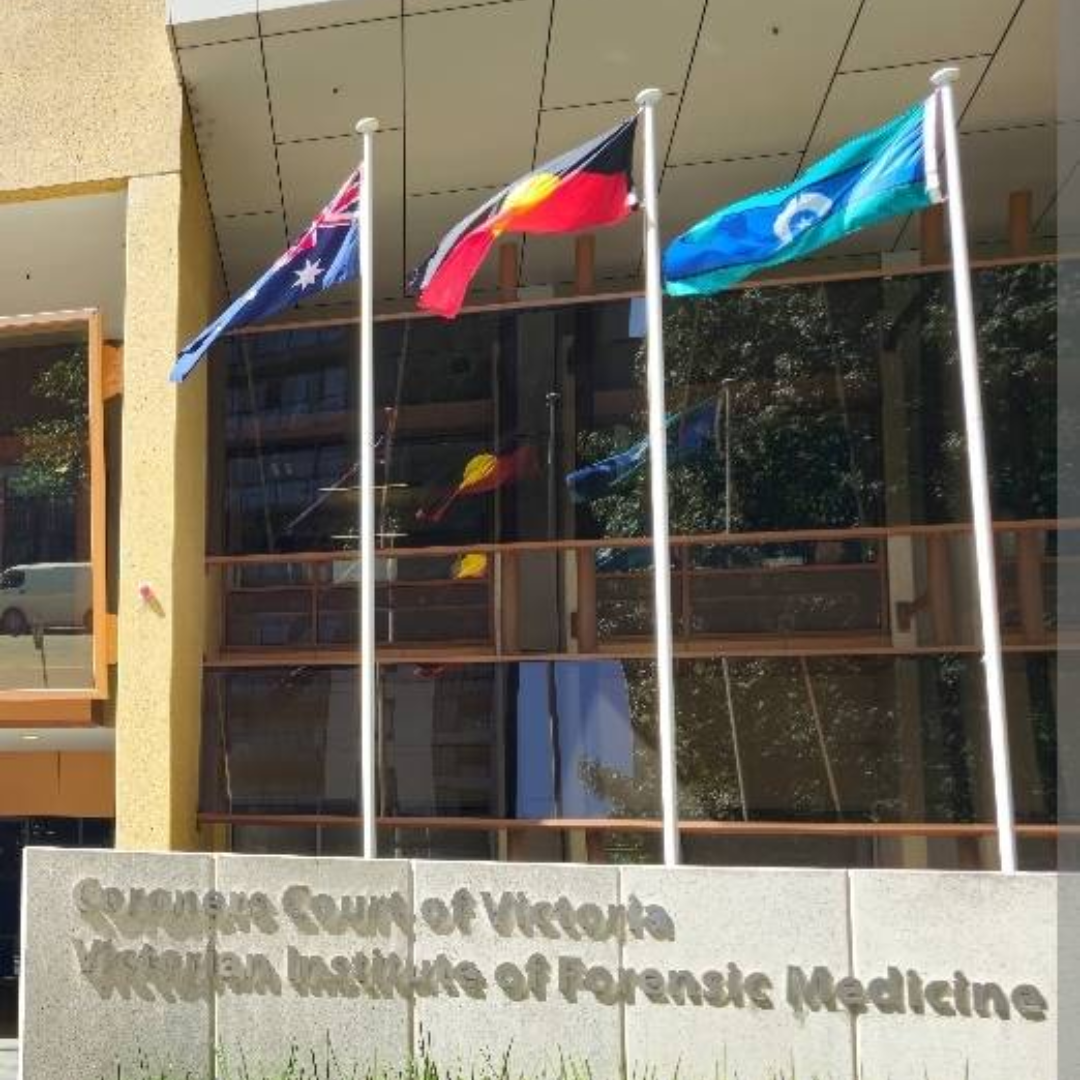By admin
•
February 16, 2026
Sanel Mujezinovic 23 December 1980 - 17 May 2021 5 years after Sanel Mujezinovic died due to a workplace incident, the findings into his death have been released by the Victorian Coroners Court. The Coroner did not conduct an inquest, but released findings and recommendations which are published online. Sanel was a 40 year old man from Bundoora, where he lived with his partner Leisa. He was the father to Levi and also left behind his ex-partner Brighid. He was a concreter and was employed by Prisbel Concrete Pumping Pty Ltd, where he had worked for about 5 years. On the day of the incident, 17 May 2021, Prisbel has been contracted by ProCon Civil Melbourne to pour concrete for a project in St Albans. Sanel was operating a concrete pumping truck - a Nissan diesel truck with a Schwing GMBH concrete boom pump. He was controlling the pouring boom at the time, while other workers were levelling the concrete. The pour began at about 7.30am and was expected to take about 5 hours. At around 11.34am, Sanel was pumping the last load and standing in the concrete slab underneath the boom, when it collapsed and struck him on the back of the head. Despite other workers rushing to assist him, Sanel was declared deceased at the scene by the paramedics who attended. Sanel was examined by forensic pathologists at the Victorian Institute of Forensic Medicine, who determined that he had suffered a skull fracture as well as a broken leg, several fractured ribs, 2 fractured vertebrae, and a collapsed lung. They determined that unconsciousness and death would have been rapid. The cause of death was determined to be: “Multiple injuries sustained in a workplace incident.” WorkSafe Victoria investigated the incident and determined that the concrete boom had collapsed due to a metal fatigue crack in the king post (which holds the boom upright and allows the boom to slew as concrete is pumped through the boom). An engineer gave the opinion that the cracks would have been detectable prior to the incident, but that this would require access to the king post, which would require disassembly of the unit for inspection. The concrete pump was acquired by Prisbel in 2010, at which time it was already 20 years old. The usage/ hours worked by the unit was unknown. It was inspected annually, but without disassembling the unit. At the time of purchase, it should have been subjected to a ‘major inspection’ as per the Australian Standards. This never happened and no 'major inspections' were conducted in the time that the pump was owned by Prisbel. The Coroner determined that Prisbel was aware that there was a requirement to conduct major inspections of their concrete pumping trucks. Prisbel engaged Andrew Baigent of Andrew Baigent Consulting Engineers to conduct inspections of the concrete pump and he issued Annual Inspection Certificates in 2019 and 2020 - although no statement by him was found to be in either the Coronial brief or the WorkSafe brief, which were provided to The Coroner. The Coroner sought statements from Dr Baigent as his inspections were proximate to the fatal incident. His inspection did not raise any concerns relating to the king post, but it was not a major inspection so did not require the disassembly of the unit and therefore did not involve not a full inspection of the king post. The Coroner raised a number of matters as a result of the statement: That the Engineer seemed to be under the impression that major inspection had been undertaken in the past, which was not what WorkSafe found in their investigation. That he recommended annual inspections, rather that periodic inspections as per the 2019 standard which are based primarily on hours of operation. The coroner noted that the concrete pumps’ hour meter was malfunctioning between 2019 and 2020 and did not record operation hours. The Coroner notes that there are differences between the 1994 and the updated 2019 Standards (ie: Australian Standard 2550.15-2019, “Cranes, hoists and winches - Safe use - Part 15: Concrete Placing equipment” ) which relate to this matter and states the following: “Under the 2019 Standard, as already explained above, the distinction (in the 1994 Standard) between annual inspections and major inspections was removed and replaced by a single requirement for a periodic inspection conducted at least once per year (or more often depending on operating hours and the age of the equipment). In undertaking a periodic inspection, a competent person can direct for the equipment to be disassembled for thorough examination of internal components such as the king post (akin to the major inspection in the 1994 Standard), but there is no requirement for strip-down and disassembly to inspect internal components other than at the competent person’s direction.” The Coroner observed that a problem exists in that signs of fatigue in the king post are not visible until disassembly occurs. Therefore, how would an engineer determine that there was an effectively ‘invisible’ problem which would cause them to direct a disassembly? She stated : “my criticism is directed at the 2019 Standard itself, which may not be up to the task of uncovering issues with critical internal components such as the king post before they catastrophically fail.” The Coroner made inquiries as to the requirements in other jurisdictions and found that it is a requirement in Queensland for a strip down 'major inspection' to be conducted every 6 years (except if deemed not necessary by a qualified engineer whose decision is based on criteria set out in a code of practice). The Coroner determined that the Queensland guidance is far superior to the Victorian 2019 standard. She also discovered that a similar King Post failure had occurred in 2022 in Queensland, but fortunately without causing injury or death. The Coroner stated that she was “concerned that there may be other concrete pumps in operation across Victoria with king posts in the process of cracking but not showing any outward signs of compromise. Under the current periodic inspection requirements in the 2019 Standard, these too could catastrophically fail without a competent person ever requiring them to undergo strip-down or disassembly to inspect crucial internal components.” “I have concluded that the periodic inspection requirements described in the 2019 Standard, where a strip-down inspection is only conducted at the direction of a competent period, may not be up to the task of ensuring Victoria’s concrete pumping fleet is safe.” It is interesting to note that these issues were raised by Senior Constable (S/C) Jonathan Tipas (who was the Coronial Investigator) and he stated the following in his report: “The Coronial Investigator recommends a review of the current Codes of Practices and Australian Standards in relation to concrete moving equipment and a suggestion that equipment either at a certain age or hour metre be subject to yearly inspections that MUST include a full strip down and examination of internal components as previously required in the AS 2550.15-1994.” However, the Coroner considered it to be ‘rather involved’ to amend the 2019 Australian Standard and therefore did not direct this action. Instead, she made a recommendation "that WorkSafe Victoria revise and update of the [Victorian] Concrete Pumping Industry Standard 2004" and introduce " more stringent requirements for strip-down inspection of concrete pumps." She also recommended that "WorkSafe Victoria introduce a regulatory requirement that the hour meter on concrete pumping equipment must be in good working order, and that it would be contrary to the regulatory requirement to operate the equipment where the hour meter is faulty.” The Coroners findings conclude that: “Sanel Mujezinovic died from multiple injuries sustained in a workplace incident, where he was struck by a concrete placing boom;” and that “Sanel Mujezinovic died at his workplace, while acting in the course of his employment, in circumstances that may have been prevented had a strip-down inspection occurred.” Prisbel had previously been prosecuted and pleaded guilty to a single charge of “failing to provide a safe work environment” under sections 21(1) and (2)(a) of the Occupational Health and Safety Act 2004. The penalty handed down by the Magistrates Court in 2025 was $50,000 with conviction. Please find the full report at: COR 2021 002573 Form 38 - Finding into Death without Inquest.pdf (source) We pay our respects to those who have lost their lives at work and acknowledge the pain and suffering of those left behind. Everyone has the right to come home from work alive and well at the end of the day.





